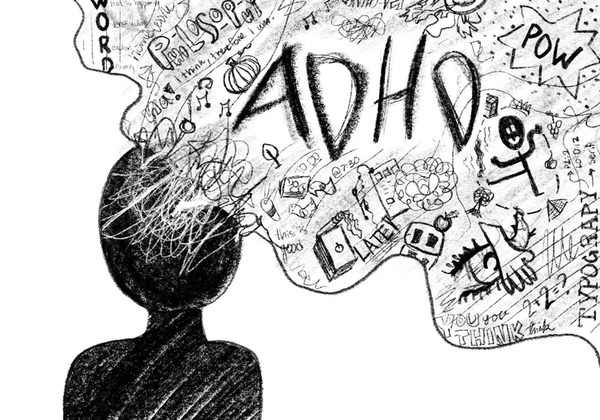Notifications
ALL BUSINESS
COMIDA
DIRECTORIES
ENTERTAINMENT
FINER THINGS
HEALTH
MARKETPLACE
MEMBER's ONLY
MONEY MATTER$
MOTIVATIONAL
NEWS & WEATHER
TECHNOLOGIA
TV NETWORKS
VIDEOS
VOTE USA 2026/2028
INVESTOR RELATIONS
COMING 2026 / 2027
ALL BUSINESS
COMIDA
DIRECTORIES
ENTERTAINMENT
FINER THINGS
HEALTH
MARKETPLACE
MEMBER's ONLY
MONEY MATTER$
MOTIVATIONAL
NEWS & WEATHER
TECHNOLOGIA
TV NETWORKS
VIDEOS
VOTE USA 2026/2028
INVESTOR RELATIONS
COMING 2026 / 2027
 Smith jordan -
July 25, 2024 -
Health -
Healthcare Recruitment consultant
-
512 views -
0 Comments -
0 Likes -
0 Reviews
Smith jordan -
July 25, 2024 -
Health -
Healthcare Recruitment consultant
-
512 views -
0 Comments -
0 Likes -
0 Reviews

A neurodevelopmental illness known as attention-deficit/hyperactivity disorder (ADHD) is typified by recurrent patterns of impulsivity, hyperactivity, and inattention that impede daily functioning and growth. Play therapy has become a useful strategy for children with ADHD, even if behavioral therapies and medication are still frequently used to treat this illness. This article examines play therapy's methods and advantages for helping kids with ADHD.
Although symptoms of ADHD can persist into adolescence and age, diagnoses for the disorder usually occur in childhood. The illness presents in two primary categories:
Having trouble staying focused, organizing tasks, and adhering to specific directions.
Excessive fidgeting, trouble staying still, and taking actions without thinking through the repercussions.
Academic difficulties, strained social interactions, and low self-esteem can result from these symptoms. Finding efficient therapies is therefore essential for managing ADHD.
Play therapy is a therapeutic strategy where children utilize play to work through psychological challenges, express their feelings, and create coping mechanisms. It enables kids to express themselves and investigate their feelings in a way that comes naturally to them. Play therapy is a non-threatening approach to addressing the special demands and difficulties faced by children with ADHD.
Play that is structured includes games and activities that have set goals and regulations. Children with ADHD benefit from structured play in terms of increased attention span, organizational abilities, and capacity for following directions. Turn-taking and patience can be taught through games like card or board games.
Role-playing, music, and painting are all included in creative play. Through creative play, kids can express themselves and learn healthy coping mechanisms for their feelings. Children with ADHD can process their emotions and practice social skills by engaging in arts and crafts like painting, drawing, or role-playing scenarios.
Playing in the sand, in the water, or with sensory toys are examples of sensory-rich activities. Through sensory play, children with ADHD can better focus and exercise self-control while also learning to control their sensory needs.
Using narratives and stories to address emotional and behavioral difficulties is known as therapeutic storytelling. To address topics like self-control and problem-solving, therapists can either write original stories or adapt ones that already exist to the child's experiences.
To address problematic behaviors and reinforce favorable ones, strategies like "playful discipline" and "playful praise" are employed. For instance, encouraging children with ADHD to obey rules and finish chores can be achieved by utilizing games as rewards or by giving instructions in an entertaining manner.
Play that incorporates physical movement, including obstacle courses or dancing, is called movement-based play. This kind of play enhances motor coordination and concentration in kids with ADHD while also helping them use their excess energy constructively.
Play therapy gives kids with ADHD a secure environment in which to communicate their emotions and frustrations. They can express feelings through play that they might not be able to express verbally, which improves their knowledge and control of emotions.
Children with ADHD pick up critical social skills including sharing, taking turns, and empathy through play interactions with classmates and therapists. These abilities are essential for enhancing social interactions and forming wholesome partnerships.
Play therapy involves kids in activities that call for patience and attention, which helps them learn self-control and focus. They can become more adept at controlling their desires and staying focused by using strategies like movement-based play and organized play.
During play therapy, children with ADHD gain confidence as they encounter success and positive reinforcement. Play accomplishments can lead to higher self-esteem and a more positive self-image.
Children who receive play therapy are encouraged to use their imaginations to solve difficulties. Children with ADHD can practice and enhance their problem-solving skills through strategic games or role-playing scenarios.
Playing is a natural method to let go of tension and anxiety. Play therapy provides children with ADHD with a calming and entertaining outlet, as their conditions may cause them to suffer increased stress.
Play therapy sessions frequently include parental involvement, which can help parents and their children communicate and understand each other better. This cooperative method teaches parents how to better meet the needs of their children.
It is imperative that you collaborate with a licensed therapist who specializes in play therapy in order to execute play therapy successfully. The child's needs will be evaluated by the therapist, who will then customize the treatment to meet the child's unique needs and objectives. Positive results require regular sessions and constant participation from the child and their caretakers.
A helpful and supplemental strategy for treating ADHD in kids is play therapy. Play therapy offers a nurturing setting for addressing emotional, social, and behavioral issues by utilizing the natural ways that kids express themselves and learn. By using strategies like sensory play, creative play, and controlled play, kids with ADHD can improve their general wellbeing, build important life skills, and boost their self-esteem. Play therapy can be an effective strategy in helping children with ADHD thrive when it is incorporated into a comprehensive treatment plan.
